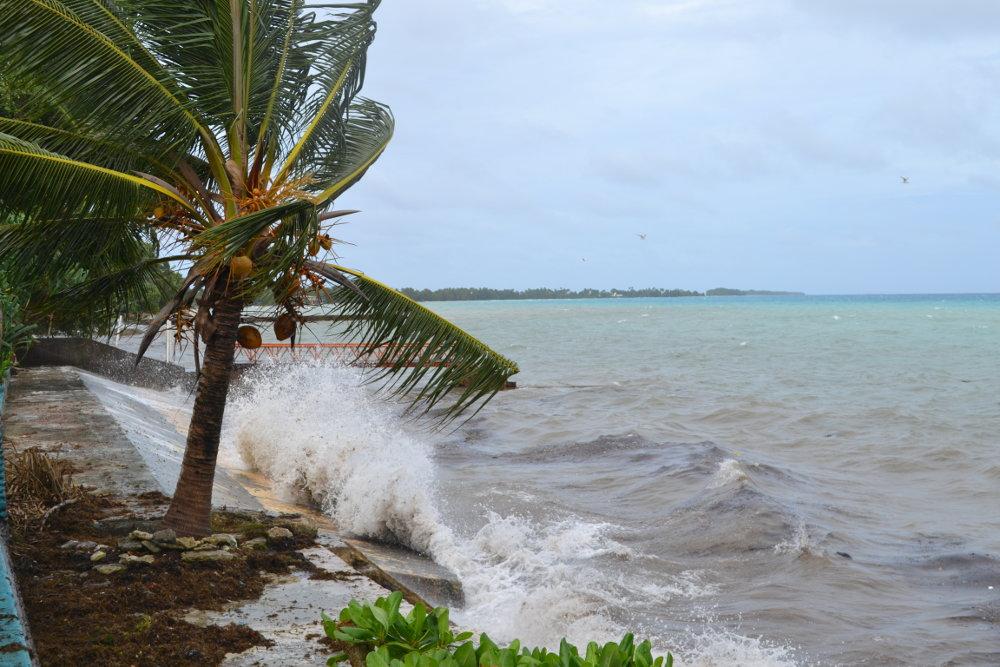Development assistance rules are denying “vulnerable” small island developing states, or SIDS, of the help they need to combat the climate emergency and must be rewritten, a UK inquiry has been told.
Multiple organisations have attacked the primary eligibility criteria for overseas development assistance, or ODA, and concessional loans — which are a country’s income per capita — claiming it penalises those island nations that are in dire need of finance as the climate threat grows.
In written evidence submitted to the UK Parliament’s International Development Committee last month, Directors of the Resilient and Sustainable Islands Initiative, or RESI, an advisory network, called it a “terrible measure” with “perverse outcomes,” while the Pacific Islands Forum Secretariat demanded “wholesale changes in the International Financial architecture.”
RESI pointed out that Hurricane Irma devastated Antigua and Barbuda in 2017, inflicting damage equal to 30 percent-50 percent of the country’s GDP, at “the precise moment that it was due to graduate from the [Development Assistance Committee] list” and would therefore no longer be eligible for ODA or concessional financing.
A senior United Nations official, who also gave evidence to the committee, warned that SIDS are “very frustrated” at the way the rules hold them back.
Jean-Paul Adam, policy and advocacy director in the Office of the Special Adviser on Africa to the UN Secretary-General and a former Seychelles government minister, told the committee that five of the six countries that have “graduated” to high-income status, with less access to finance, are small island states.
“When you have a smaller population, you tend to be able to grow your GDP per capita more quickly, but it does not reflect the real [climate] vulnerability,” he said, adding: “Having metrics that address vulnerability more fundamentally would be much more useful.”
According to Adam, this was “a critical conversation” at the Summit for a New Global Financing Pact in Paris in June, and should also be key to the discussions happening in the World Bank and the International Monetary Fund “on the subject of the reform of the international financing architecture.”
However, the issue is not currently due to be on the agenda for the institutions’ annual meetings to be held in Morocco in October, having not been part of reform discussions at April’s Spring Meetings.
The third continuous year of UK aid budget cuts has hit climate programs again. The cuts come amid a bleak global outlook for climate and as U.N. talks stutter, with demand for climate finance a key priority of poor countries.
The International Development Committee launched the inquiry into SIDS and the impact on development of their “ability to anticipate, resist and recover from climate-related shocks” following the UK government’s SIDS strategy paper, issued in January. The paper reiterated the 26th UN Climate Change Conference, or COP 26, ambition that “vulnerability should guide decisions on the allocation of finance,” but made no specific reference to aid and lending rules.
Both the Bridgetown Initiative, to reform international finance, and the drive to create a loss and damage fund seek to address the crisis confronting SIDS as the fast-changing climate brings more extreme weather events, natural disasters, and rising sea levels.
Written evidence submitted to the UK inquiry puts the focus on the income per capita criteria, which the Pacific Islands Forum Secretariat said should be the “starting” point for reform.
“The current ranking of countries based on GNI and GDP does not account for inherent and embedded vulnerabilities of the Pacific SIDS,” the organisation stated.
RESI said SIDS already faced “daunting challenges” because their small size and limited “state capacity” made it more difficult to draft the technical documents needed to secure finance.
But it added that the GNI per capita basis on which ODA is allocated is a “terrible measure of development in SIDS” as it “skews their average upwards,” and fails to adequately capture the inherent or structural vulnerabilities that pervade the development process of these island nations.
SOURCE: DEVEX/PACNEWS














